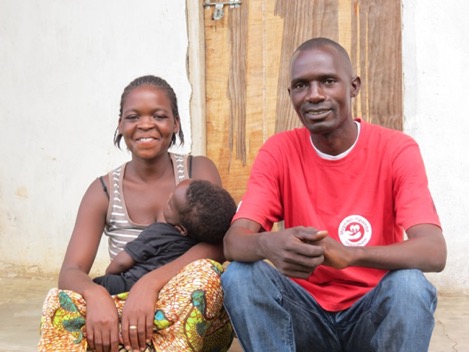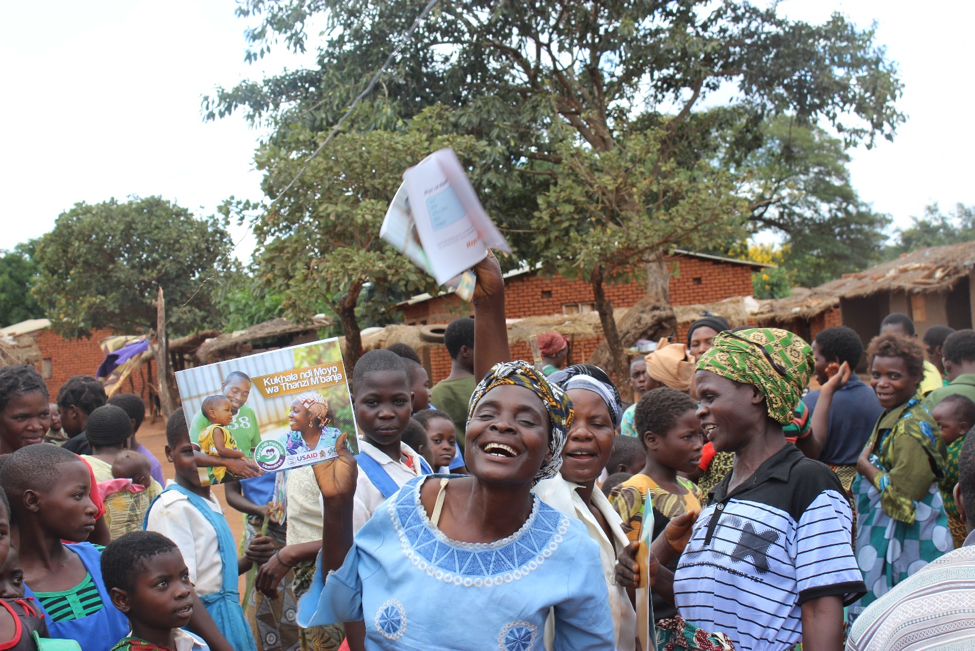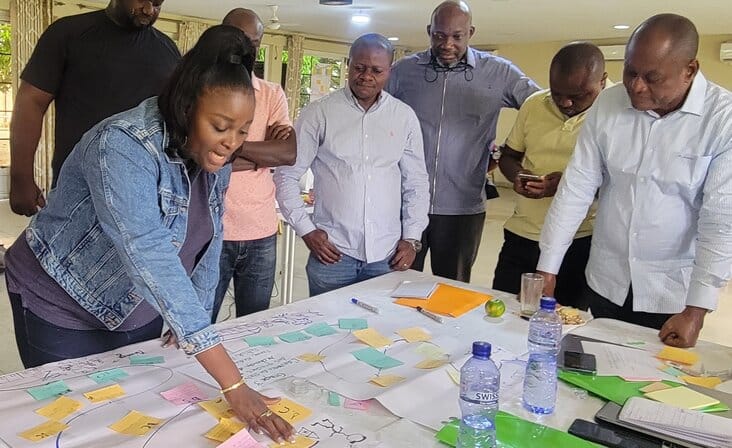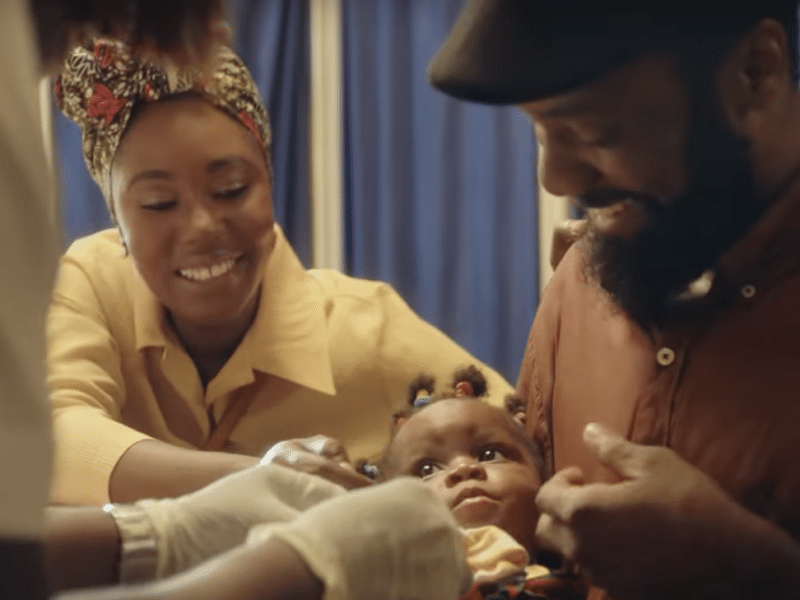Malawi is a small, landlocked country in Sub-Saharan Africa that is the self-proclaimed “warm heart of Africa,” well known for its friendliness and kindness. Malawi is a country also characterized by its natural beauty, which is largely untouched by modern industry, including the enormous Lake Malawi.
This beautiful country struggles with a series of challenges that prevent its citizens from living healthy lives. A majority of Malawians are subsistence farmers or depend on subsistence farming to get by; poverty is the norm. While malnutrition and maternal, infant and child mortality have declined, both remain a major problem, with high levels of stunting and anemia among children.
In response to this situation, USAID/Malawi and the Government of Malawi engaged the Johns Hopkins Center for Communication Programs (CCP) to implement the Support for Service Delivery Integration (SSDI)– Communication project.
Between September of 2011 and December of 2016, SSDI-Communication worked with the Ministry of Health to:
- Create and implement social and behavior change communication (SBCC) that addresses health issues across six health areas: malaria; family planning; maternal, neonatal, and child health; water, sanitation, and hygiene; HIV & AIDS; and nutrition.
- Strengthen the capacity of key partners to design, plan, implement and coordinate SBCC.
Rather than creating separate communication tools to address each of the six targeted health areas, SSDI-Communication took an integrated approach based on life stages. This meant that health messages were grouped based on the particular health needs of each life stage (adolescents, young couples, parents of children under the age of five, and parents of children older than five). In this way, the project assured that the right messages and SBCC got to the right audiences in a streamlined and cohesive way.
SSDI-Communication engaged key partners to collaboratively develop the now well-known Moyo ndi Mpamba, Usamalireni! health brand and campaign. The brand, which translates to “Life is precious, take care of it!” acted as an umbrella for health promotion and social and behavior change across the project’s six health areas. The campaign utilized a variety of approaches, including:
- Transformative tools, which were distributed to communities, including a family health booklet, a flipchart for community health workers, marriage counseling materials for newlyweds, and materials specifically for children and adolescent girls and young women.
- Radio programs including a radio serial drama, reality radio and two “national radio dialogues”.
- SMS engagement with campaign audience members.
- Music and other events including a Moyo ndi Mpamba all-star album and video, as well as Moyo ndi Mpamba-themed concerts and other interactive and entertaining community events.
- Theater that incorporated health issues into community-based entertainment.
These tools and activities, implemented in tandem with community mobilization (spearheaded by the SSDI-Services project) made up the Moyo ndi Mpamba campaign. By using so many platforms and channels, SSDI-Communication ensured that all levels of the socio-ecological model were targeted. Read more about these activities and access campaign materials in the SSDI-Communication online toolkit.
In addition to creating social and behavior change among Malawians, SSDI-Communication had great success in strengthening capacity for SBCC in Malawi, implementing a wide variety of activities to strengthen the capacity of partners in multiple sectors:
- In the public sector, the project assisted the Ministry of Health to develop communication strategies, improve SBCC-related knowledge management, monitor and coordinate SBCC, and provided training in SBCC programming.
- For the media, the project implemented the Media4Life initiative which trained journalists on health reporting and advocated for better coverage of health issues in the media.
- The project also worked in academia, assisting the University of Malawi to institute a bachelor’s program in health communication, and providing lectures on SBCC and related topics.
Both an internal and external evaluation of SSDI-Communication found that the campaign achieved statistically significant changes in behavior as well as knowledge and attitudes related to the health areas that were the focus of the project, including:
- Nearly 70% of all exposed respondents reported that they wash their hands using soap and water at endline compared to 57% during the baseline.
- Moyo ndi Mpamba participants reported an average of 3.4 antenatal care visits while non-participants reported an average of 3. 1 visits.
- Exposure to the program was significantly and positively associated with HIV testing (women: 79% unexposed vs. 93% exposed; men: 72% unexposed vs. 85% exposed).
- Exposure to at least one campaign activity was associated with significantly reduced likelihood of having more than one sexual partner in the past 12 months.
Anecdotal reports indicate that the campaign has permeated the consciousness of Malawians, and the words “moyo ndi mpamba” are commonplace in daily conversations. The slogan “Life is Precious: Take care of it” is widely used in the media. It is even displayed on homemade signs and written on houses.
The wild success of the brand and campaign will likely translate into a boost for future SBCC campaigns that adopt the slogan. Additionally, the Malawi Ministry of Health has dictated that all health programs implemented in collaboration with the government should bear the Moyo ndi Mpamba logo and brand.
In particular, feedback from communities indicate that the Family Health Booklet is a treasured resource that will be used for years to come by families and communities, who view the booklet as a valuable tool they can use to improve their lives while radio listeners reveal that the campaign has successfully reached and inspired discussion about the essential health practices it promotes.

Smith Luhanga and his wife Felidah.
According to Smith Luhanga and his wife Felidah (pictured at right), they both used to fall sick with malaria very often. After listening to the Moyo ndi Mpamba radio drama, they began sleeping under an insecticide-treated net every night. They are now able to save and invest their money in other things, instead of spending their disposable income on doctor visits and medicine. “We are also able to provide better care for our children [now] than we did in the past because we used to be so busy taking care of ourselves [due to malaria],” says Felidah.
This post was written by Claire Slesinski, Program Officer. Claire is based at CCP’s headquarters office in Baltimore, MD and supports projects in Guatemala, Angola and Malawi.





